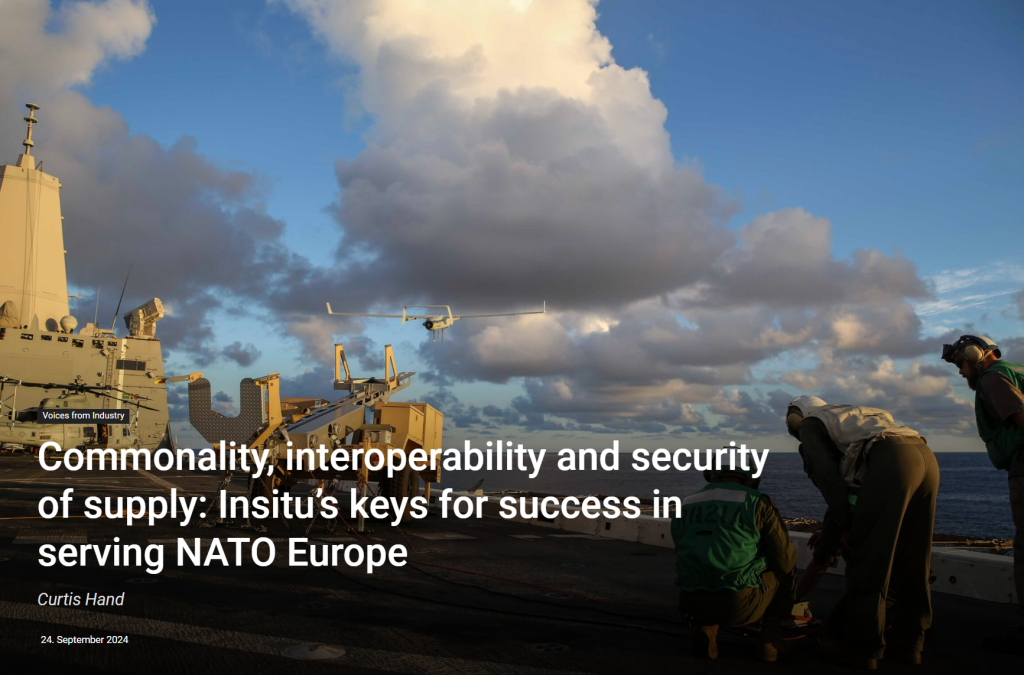
Commonality, interoperability and security of supply: Insitu’s keys for success in serving NATO Europe
Original article on European Security & Defense by Curtis Hand
24 September, 2024
Insitu Incorporated, a Boeing company, reached a milestone this year: 30 years of unmanned aircraft innovation excellence – and nearly 20 years of supporting NATO, helping it to project NATO power on land and at sea from the air. ESD’s Curtis Hand spoke with Insitu CEO Diane Rose about what is next for the company in terms of current and future operational theatres, warfare’s evolution, and new industrial partnerships and strategic alliances – all to strengthen NATO and its affiliates.
ESD: What is next for Insitu in terms of what you and your team see as the next theatre in Europe to support … and technologies to develop to fill an anticipated need?
Rose: We expect supporting Ukraine will remain a top priority in the European theatre for some time, along with our European NATO allies that border Russia and Belarus and those that support NATO’s enhanced Forward Presence (eFP) in Eastern Europe. The technological need is clear: we must focus on integrating capabilities that enable routine and reliable unmanned aerial system (UAS) operations in the contested electronic and kinetic environment. Without getting into specifics, we can say this generally means the ability to operate with increased autonomy, the ability to operate without space-based position, navigation and timing (PNT) input and the ability to deliver kinetic and electronic effects – all at a scale that is affordable and attainable while remaining reusable.

To that end, Insitu and our parent company Boeing recently entered a strategic partnership with the Antonov Company of Ukraine to explore working together to provide training, logistical support and overhaul services for the ScanEagle unmanned aerial vehicles (UAVs) used by the Ukrainian armed forces. We’re excited about this opportunity to further support Ukraine and potentially expand into engineering activities that enable us to rapidly integrate emerging technologies together. We will continue seeking additional partners across Europe who can help.
ESD: NATO Europe is in a unique position with various threats along its eastern boundary and a variety of climatic conditions, from the Arctic to the Black, Mediterranean and Red Seas. What did Insitu learn during Operation ‘Atalanta’, the EU counter-piracy military operation off the Horn of Africa, and how has that affected its research and development (R&D)?
Rose: Since 2015 the Spanish Navy has been Insitu’s primary customer supporting Operation ‘Atalanta’, having deployed ScanEagle aboard the landing platform dock Galicia (L51) and the frigate Santa María (F81) from 2015 to 2017 and once again aboard the frigates Santa María, Numancia (F83), Reina Sofia (F84) and Canarias (F86) from 2020 to 2024. Like many of our other maritime customers, their operations focused primarily on interdicting piracy and smuggling in the Red Sea, Gulf of Aden, and northwestern Indian Ocean for several years.
As a result, much of our R&D during that period focused on integrating capabilities that enable our platforms to detect small vessels across vast expanses of ocean. In more recent times we’ve seen an increasingly contested electromagnetic spectrum across the region, which, along with feedback from our end users in Ukraine, has led us to focus much of our R&D on integrating capabilities that enable our platforms to operate in jamming and spoofing conditions.
Insitu has been also working with industry partners in Norway to optimise our platforms for the harsh weather and other environmental challenges found across Northern Europe and especially in the Baltic and Nordic regions. These R&D efforts include greater tolerance for operating in heavy rainfall as well as active anti-icing and de-icing capabilities among others.
ESD: When did Insitu first enter the NATO Europe market and how has its experience here shaped its success in Europe and other markets?
Rose: Insitu has been active in the NATO Europe market for nearly two decades and our experience there has been particularly influential for our naval and coast guard customers around the globe, not only when it comes to shipboard installation and operations but also with respect to testing and certification for the shipboard and maritime environment. As of August 2024 Insitu’s UASs have operated from more than 45 classes of ship, including several types of European NATO warships. During 2006 ScanEagle deployed aboard the UK Royal Navy frigate HMS Sutherland (F81), supporting the UK Ministry of Defence’s Joint UAV Experimentation Programme to inform future UAS requirements in the maritime and littoral environments. After subsequent trials aboard the auxiliary landing ship docks RFA Mounts Bay (L3008) and RFA Cardigan Bay (L3009), the Royal Navy would go on to deploy ScanEagle aboard eight additional Type 23 frigates from 2014 to 2017. Along the way, ScanEagle earned a Statement of Type Design and Assurance per STANAG 4703 from the UK Military Airworthiness Authority (MAA).
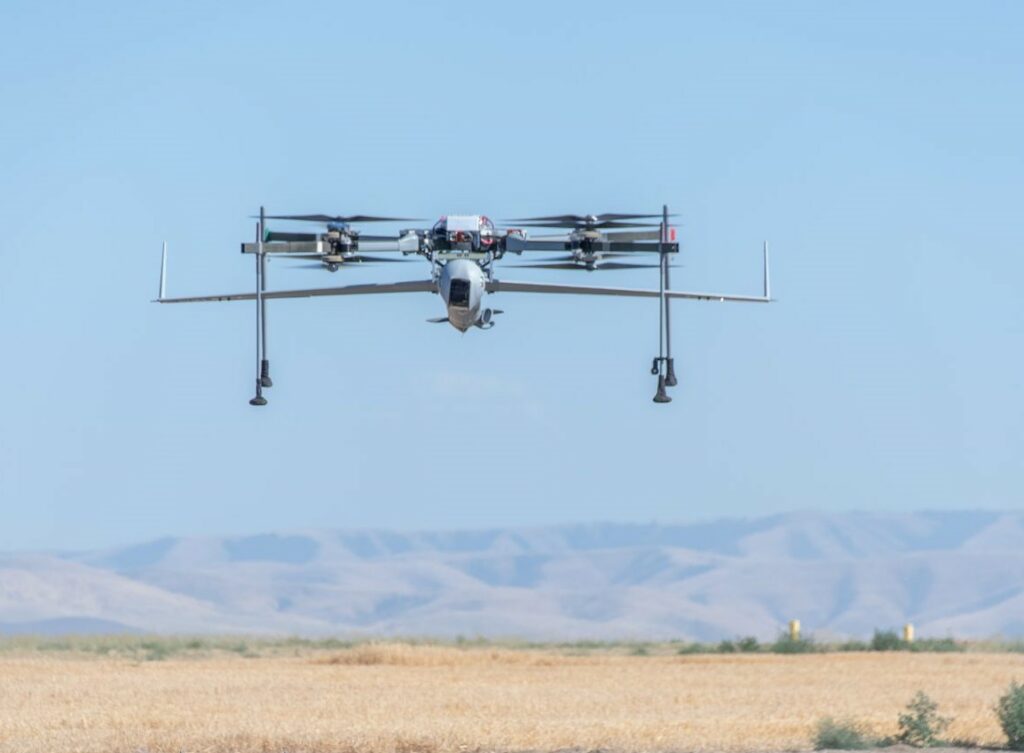
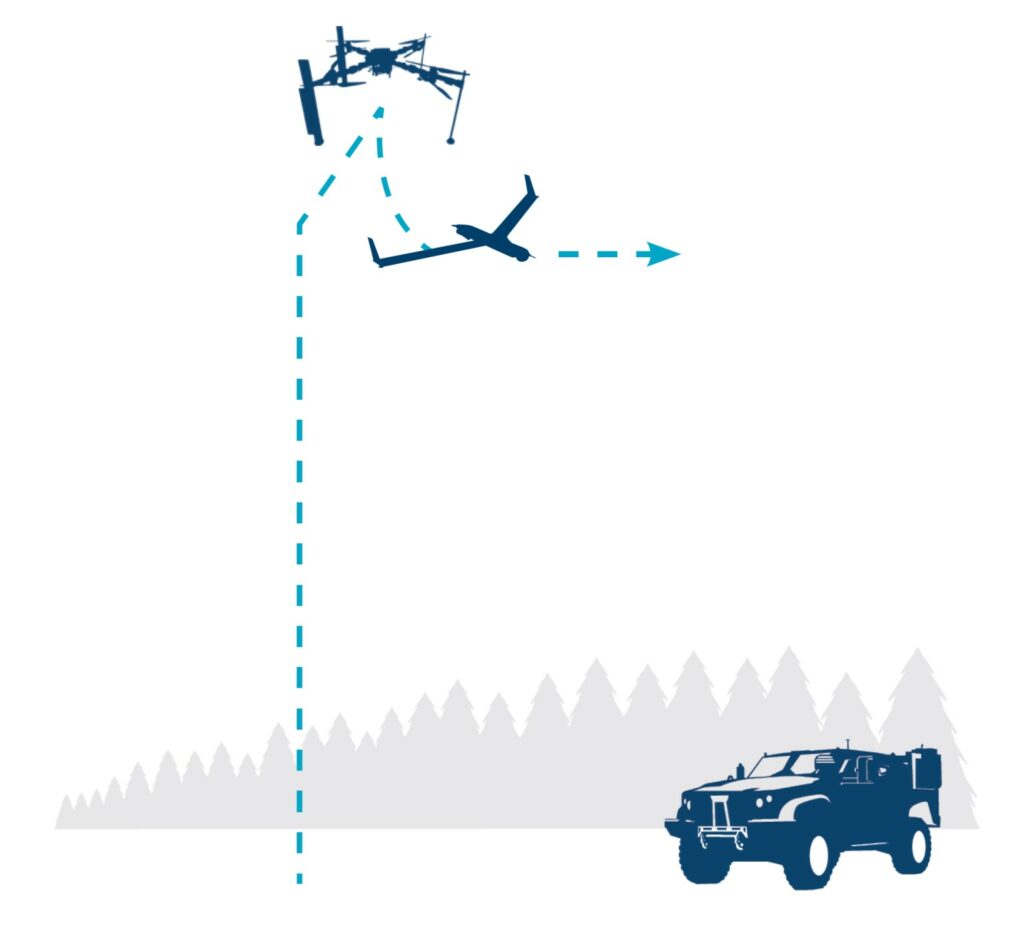
Meanwhile, the Polish Special Forces acquired and fielded ScanEagle via the US Foreign Military Sales (FMS) mechanism during 2010. The Royal Netherlands Army then fielded ScanEagle as an interim solution for their Short-Range Tactical UAV (SRTUAV) requirement during early 2012 and deployed the system aboard HNLMS Rotterdam (L800), supporting the NATO counter-piracy Operation ‘Ocean Shield’ off the Horn of Africa. They subsequently deployed ScanEagle to the United Nations Multidimensional Integrated Stabilization Mission in Mali (MINUSMA) from 2014 through to 2015. Besides gaining considerable operational experience on land and at sea during this period, ScanEagle also gained military type certification per STANAG 4671 – Unmanned Aerial Vehicle Systems Airworthiness Requirements – from the Netherlands MAA.
Around the same time the Lithuanian Air Force and the Romanian Land Forces fielded ScanEagle via FMS during 2013, followed by the Army of the Czech Republic and the Spanish Navy during 2014. The Czech Army deployed ScanEagle to Afghanistan, supporting NATO’s International Security Assistance Force (ISAF) during 2015 through to 2020, while the Spanish Navy, in addition to their support for Operation ‘Atalanta’, deployed ScanEagle to Iraq, supporting Operation ‘Inherent Resolve’ during 2017 through to 2019. The Italian Navy chose ScanEagle during 2016 to enhance their maritime surveillance and reconnaissance capabilities and after achieving military type certification from the Directorate of Aeronautical Armaments and Airworthiness (DAAA) in 2021, ScanEagle began operating from the frigate ITS Carlo Bergamini (F590) during 2023.
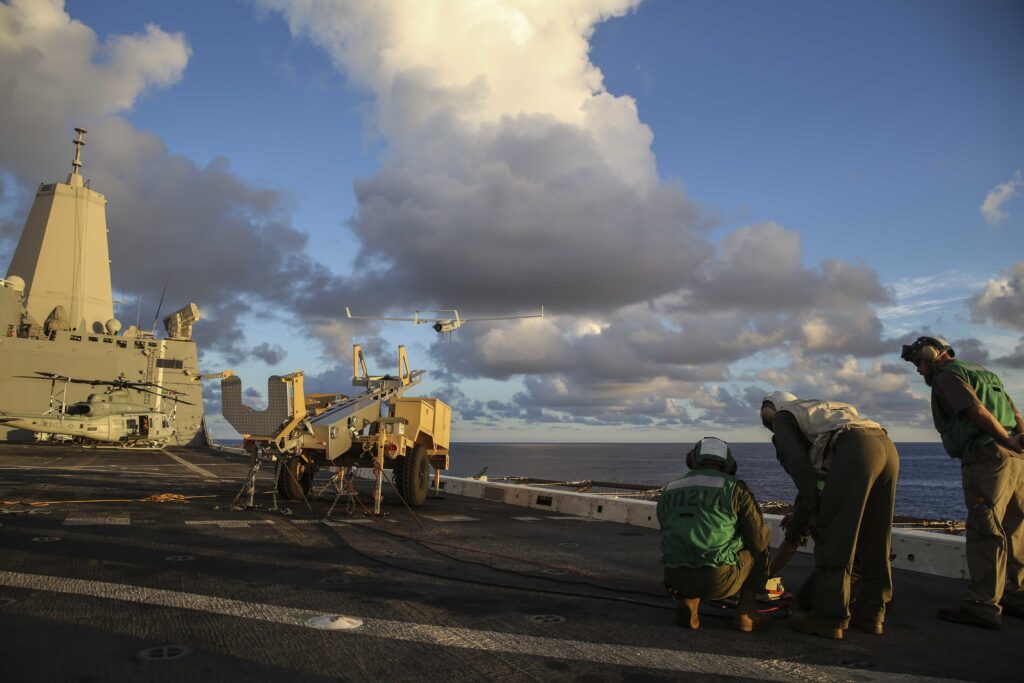
Additionally, after operating ScanEagle as an interim system for five years, the Royal Netherlands Army selected Insitu’s Integrator UAS for their SRTUAV programme during 2017. By 2019 the Luxembourg Army had joined the SRTUAV programme, followed by the Belgian Land Component in 2021, making their collective programme the largest in Europe and the second largest in the world. Also during 2021 the Netherlands MAA issued a military type certification for the Integrator UAS per STANAG 4703. During 2022 the Polish Special Forces fielded the RQ-21 Blackjack variant of the Integrator UAS via FMS, in addition to their ScanEagle systems.
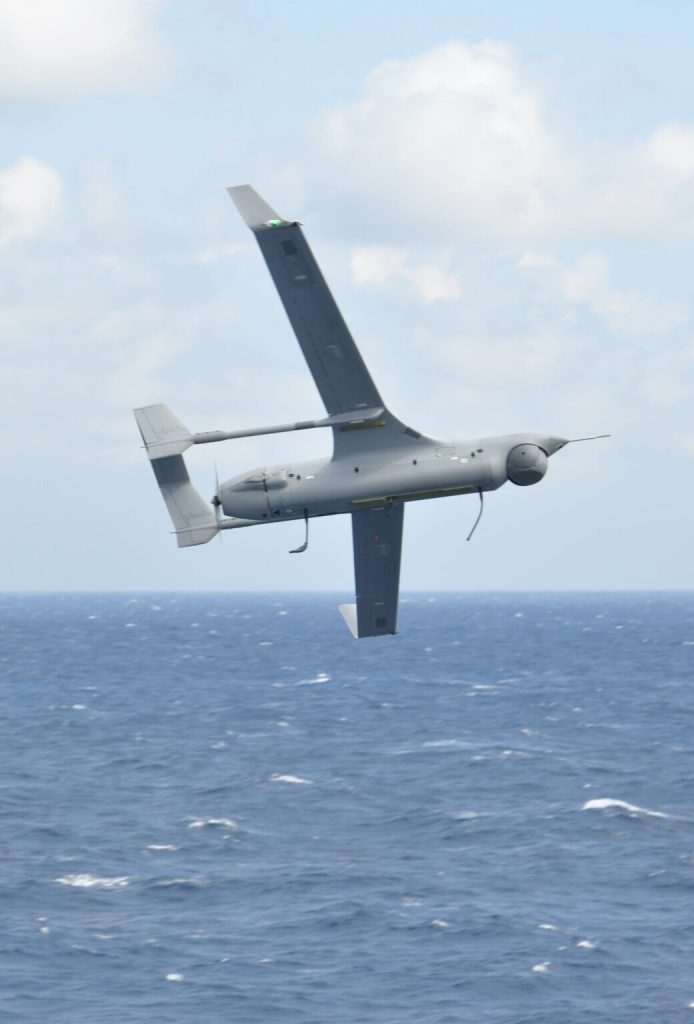
Our experience with these customers has shaped our success in the NATO Europe market because commonality, interoperability and security of supply are so foundational to the alliance. Today we have seven NATO allies plus the Armed Forces of Ukraine operating ScanEagle and six NATO allies operating Integrator or the RQ-21 Blackjack. This customer base represents one third of NATO, and we’re excited to compete for additional opportunities across the alliance. We are also pleased to co-operate with the NATO Support and Procurement Agency (NSPA), providing acquisition and lifecycle support for allies who field the Insitu UAS.
***
Insitu Inc CEO Diane Rose: professional highlights
Diane Rose joined Insitu in 2018. During her tenure there, before becoming president and CEO, she served as Vice President of Programs, responsible for executive oversight and leadership of all Insitu programmes. Prior to that role, she was dual-hatted as Director of Domestic Programs and RQ-21A Blackjack Program Director.
Rose also provided programme management oversight and leadership across the largest portfolio of Insitu defence programmes, including for the US Marine Corps RQ-21A Blackjack fleet, Naval Special Warfare MQ-27B ScanEagle fleet, US Navy and US Coast Guard intelligence, surveillance, and reconnaissance services to land and maritime units, and all Foreign Military Sales cases through Naval Air Systems Command.
Previously, Rose spent 13 years with the US Department of the Navy as a civil servant in senior programme management and acquisition roles. Among her accomplishments and credits, she was recognised with the coveted Navy Meritorious Civilian Service Award.
Read the original article here.
Related news
Insitu Awarded $84M IDIQ Contract Modification by NAVAIR for ScanEagle and RQ-21A UAS
April 11, 2024Read more
Recent News
Boeing, Antonov to Collaborate on Defense Projects
Includes exploring opportunities for collaborating on in-country support of Unmanned Aerial Systems
Read More »QE-1 Squadron turns 2 years old
The military ceremony took place at the São Pedro da Aldeia Naval Air Base
Read More »NAM ‘Atlantic’ launches ScanEagle for the first time
Docked at the Port of Rio Grande (RS), the Multipurpose Aircraft Carrier (NAM) Atlântico (A 140) launched, in an unprecedented way, last Friday (28), an Embedded Remotely Piloted Aerial System (SARP-E).
Read More »